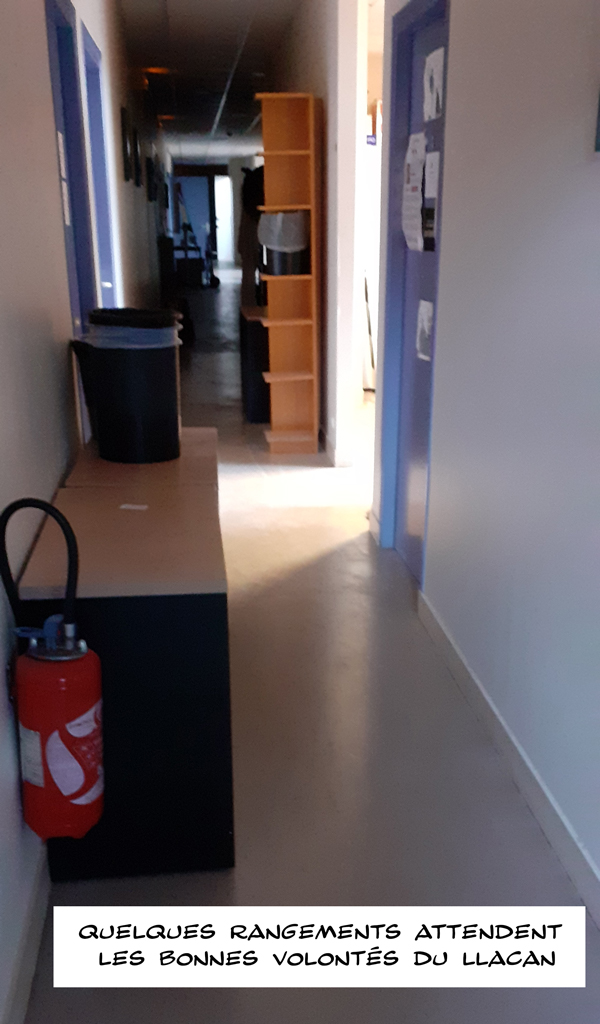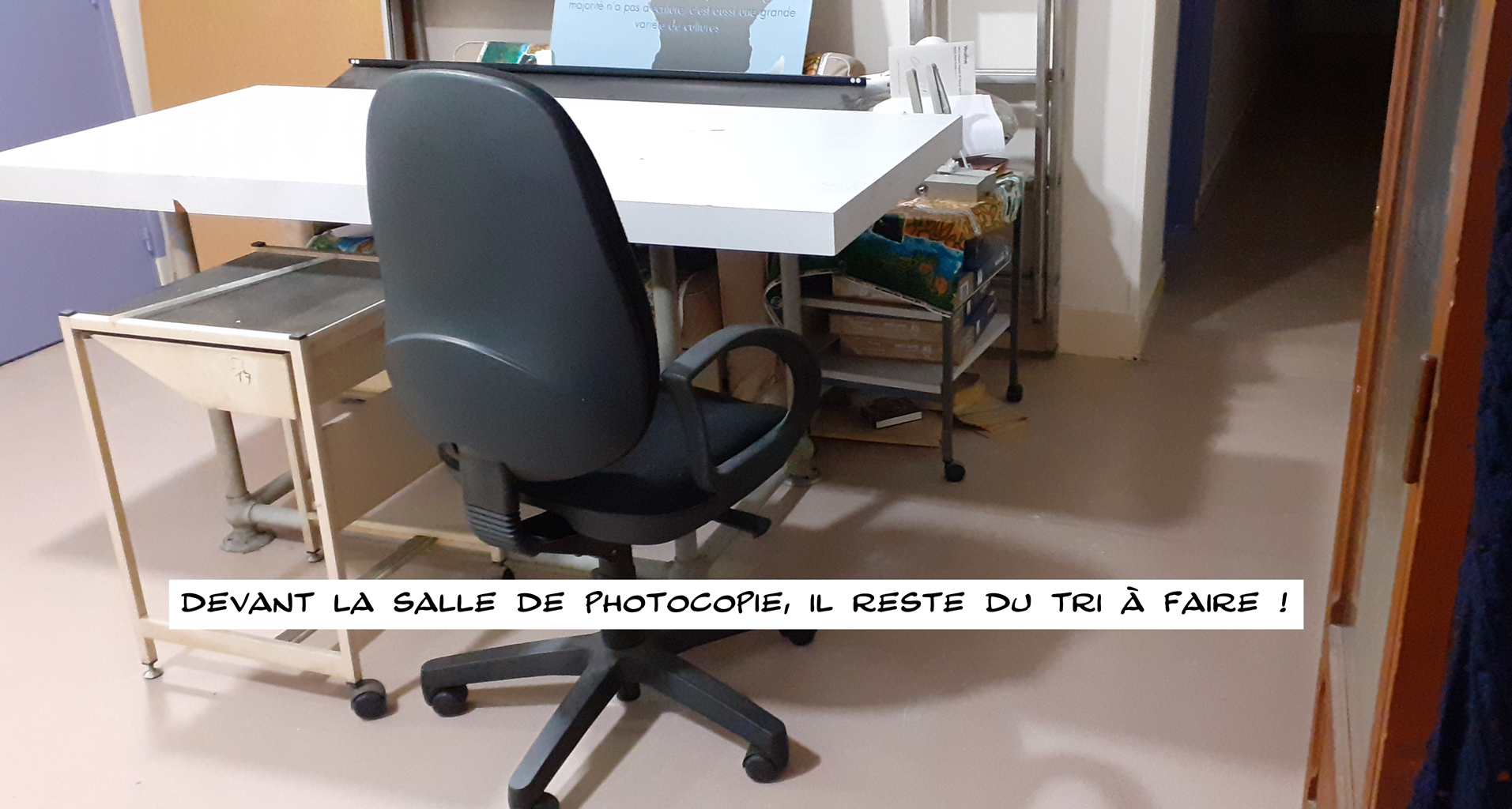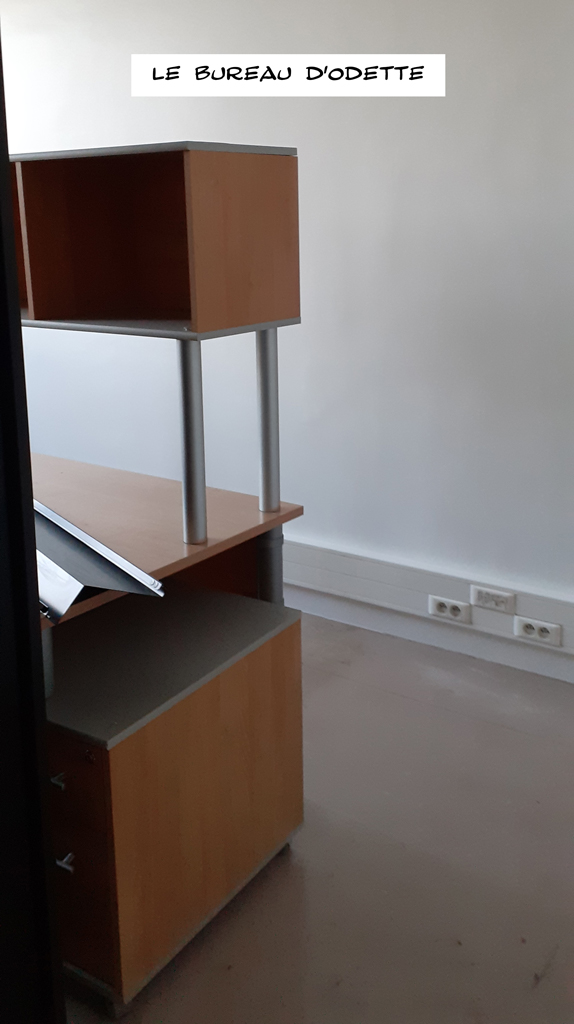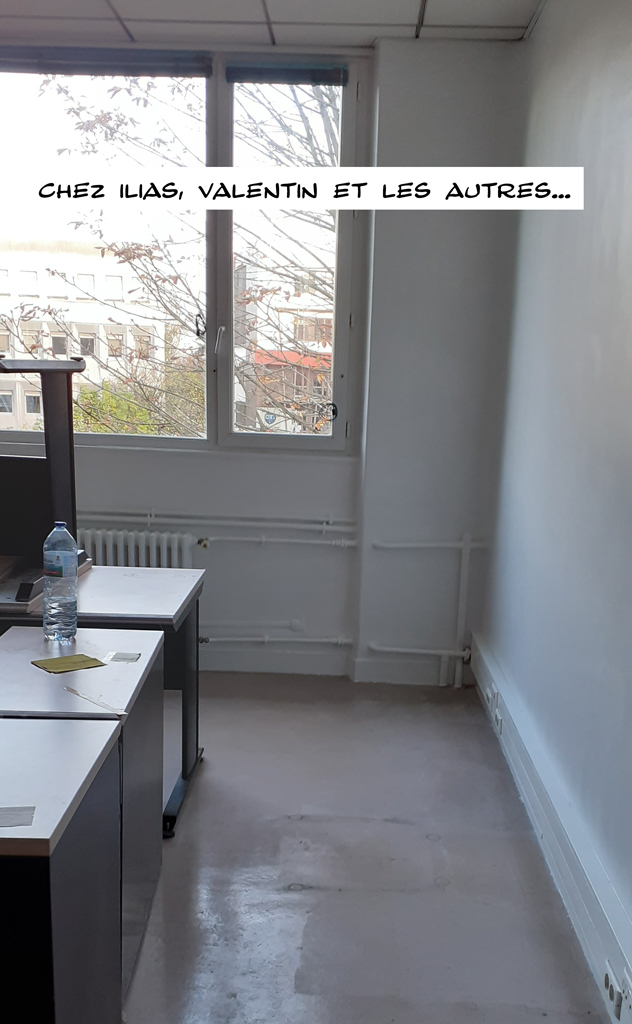Un dernier petit reportage photo, maintenant que les peintres sont repartis. Il ne reste plus qu’à se retrousser les manches pour remettre en place les derniers meubles (on parle quand même de 6 pièces du Llacan, c’est pas rien), et redonner un visage humain à la salle de réunion, aux couloirs… c’est maintenant plus que jamais que, pour ceux qui peuvent faire un petit saut au Llacan, nous aurons besoin d’aide (et ce dès ce mardi après-midi!). L’objectif est que quand le confinement sera terminé, on reviendra, tous, dans un labo tout propre et bien rangé. Pour se remettre le moral à l’endroit.
Jour : 2 novembre 2020
Séminaire de Recherches en Phonétique et Phonologie – Kambata (Y. Treis)
S-RPP – Séminaire de Recherches en Phonétique et Phonologie
Kambata (Y. Treis) – 6 novembre 2020
Le prochain SRPP aura lieu le vendredi 06 novembre 2020, de 14h00 à 15h30 (voir le lien plus bas)
Intervenante : Yvonne Treis (CNRS-LLACAN)
Titre : The functional load of stress in Kambata
Lien vers la réunion : https://us02web.zoom.us/j/82022773467?pwd=dVloN2VlK25mdmtTaWw0QkdhRFg1dz09
Résumé : It is generally agreed that Cushitic languages have grammatically determined tonal accent or stress. However, in the available grammars of individual languages, the functional load of accent or stress is often only superficially described and does at times not go beyond the presentation of some illustrative minimal pairs. This paper sets out to describe the stress system of Kambaata, a Highland East Cushitic language of Ethiopia, in more detail. Every Kambaata word has one prominent syllable. Stress has (almost) no lexical importance (exception: stress on interjections and ideophones). Instead, the realisation of stress on nouns, verbs and adjectives is determined by the inflectional categories and values for which a word is marked. The stems of nouns, verbs and adjectives are unspecified for stress, but stress is imposed by inflectional morphemes. All (but one) inflectional morphemes in Kambaata have a segmental as well as a suprasegmental realisation. In my talk, I propose a typology of Kambaata inflectional morphemes depending on where they realise stress in a word. After a presentation of the general features of the Kambaata stress system, I present two case studies: (i) I demonstrate the importance of stress for case marking and (ii) I discuss relativisation in the imperfective and perfective aspect, which is marked by a stress-only morpheme.







